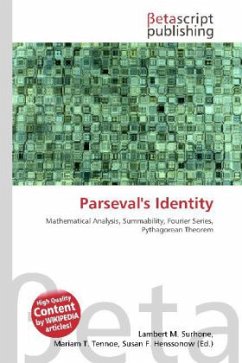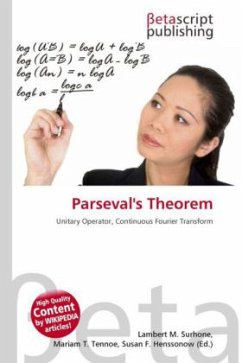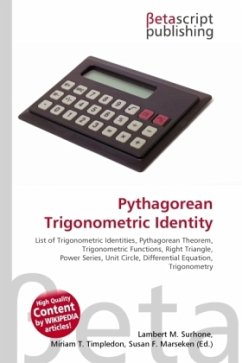
Parseval's Identity
Versandkostenfrei!
Versandfertig in 6-10 Tagen
23,99 €
inkl. MwSt.

PAYBACK Punkte
12 °P sammeln!
Please note that the content of this book primarily consists of articles available from Wikipedia or other free sources online. In mathematical analysis, Parseval''s identity is a fundamental result on the summability of the Fourier series of a function. Geometrically, it is the Pythagorean theorem for inner-product spaces. Informally, the identity asserts that the sum of the squares of the Fourier coefficients of a function is equal to the square integral of the function. This is directly analogous to the Pythagorean theorem, which asserts that the sum of the squares of the components of a ve...
Please note that the content of this book primarily consists of articles available from Wikipedia or other free sources online. In mathematical analysis, Parseval''s identity is a fundamental result on the summability of the Fourier series of a function. Geometrically, it is the Pythagorean theorem for inner-product spaces. Informally, the identity asserts that the sum of the squares of the Fourier coefficients of a function is equal to the square integral of the function. This is directly analogous to the Pythagorean theorem, which asserts that the sum of the squares of the components of a vector in an orthonormal basis is equal to the squared length of the vector. One can recover the Fourier series version of Parseval''s identity by letting H be the Hilbert space L2[ , ], and setting en = e inx for n Z. More generally, Parseval''s identity holds in any inner-product space, not just separable Hilbert spaces. Thus suppose that H is an inner-product space. Let B be an orthonormal basis of H; i.e., an orthonormal set which is total in the sense that the linear span of B is dense in H.












